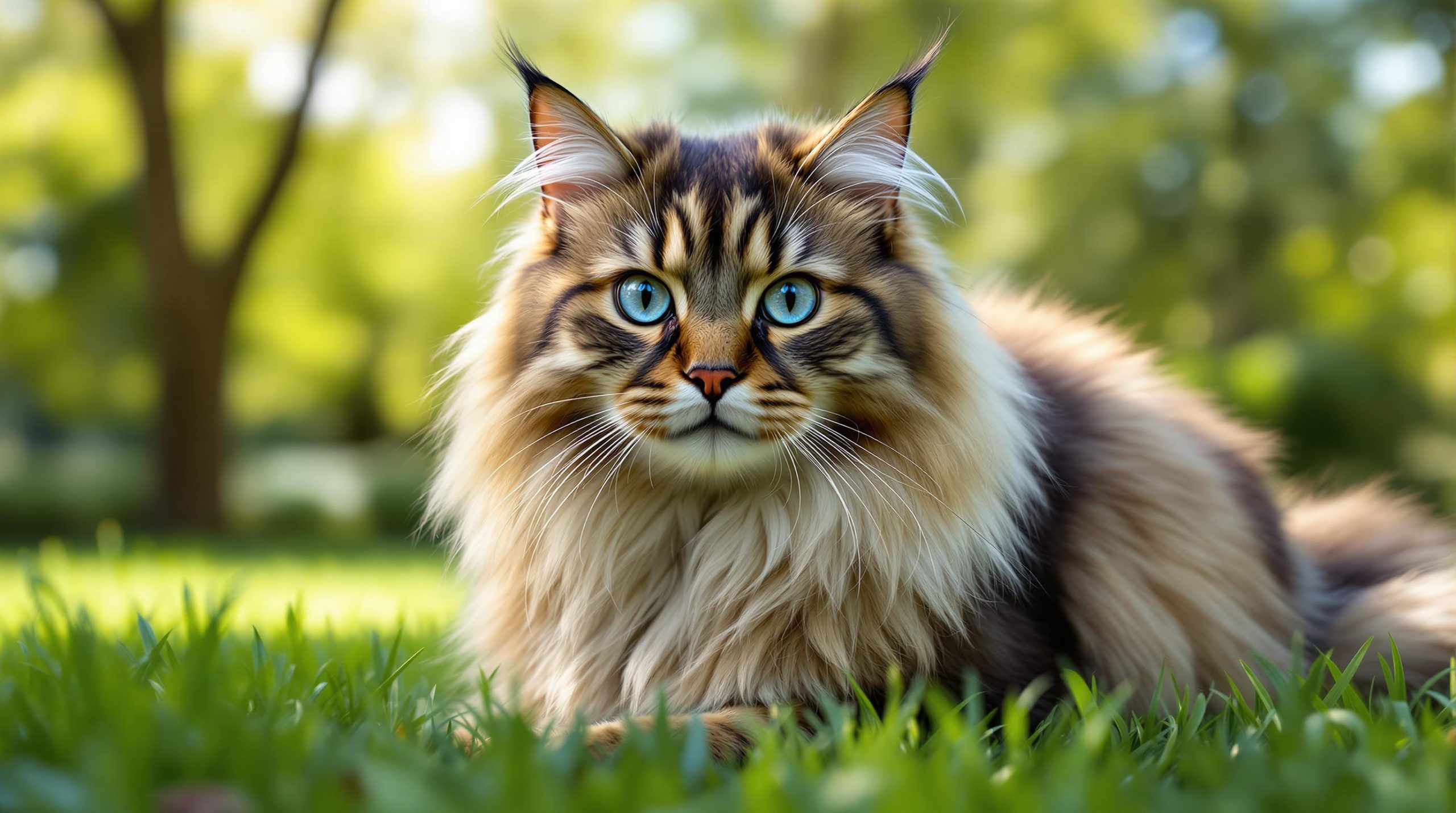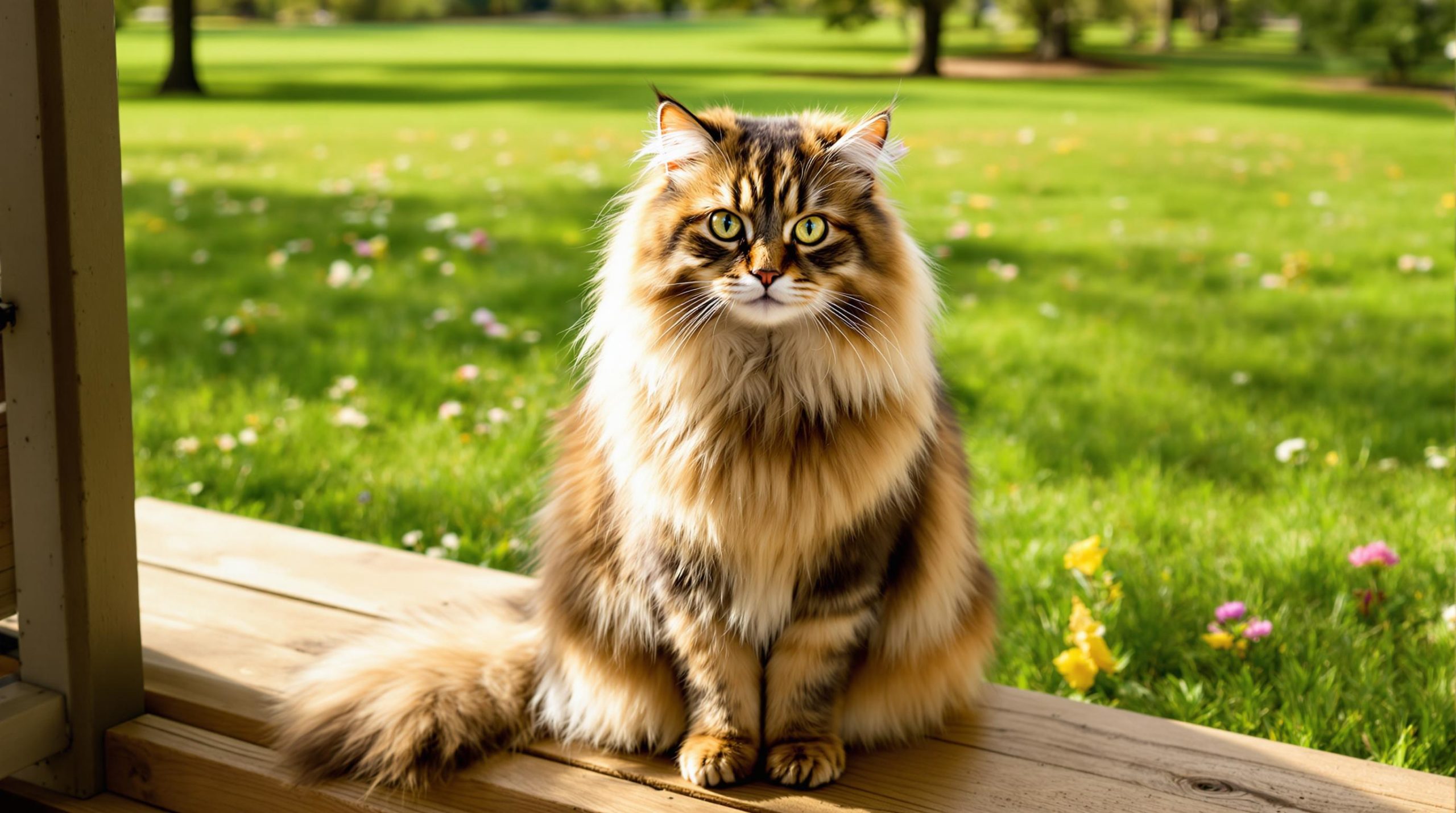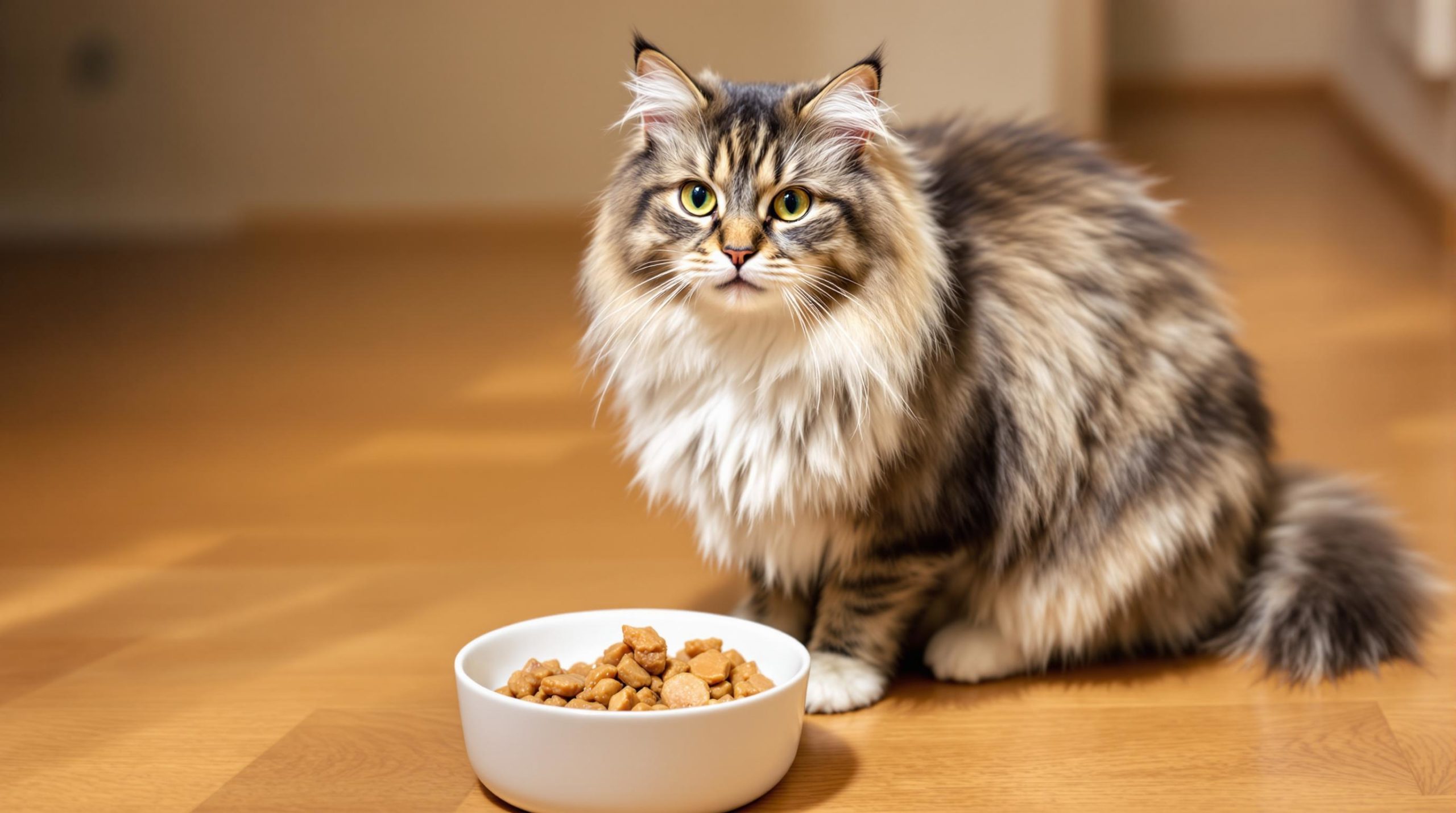Exploring the unique fur characteristics of Maine Coons: do they possess oily fur?

The enchanting Maine Coon cat, known for its majestic size and luxurious fur, carries more secrets in its coat than most cat lovers realize. Among the common questions is whether Maine Coons have oily fur. Their plush, water-resistant double coat isn’t just for show—it reflects a refined balance of natural oils, grooming habits, and health. Understanding these unique fur characteristics can transform how owners care for their furry giants, ensuring their coats remain glossy without slipping into greasiness. Delve into the world of Maine Coon fur with insights drawn from expert breeders, veterinary science, and heartfelt experience shared by passionate enthusiasts.
Understanding the Natural Oils in Maine Coon Fur: Is Oily Fur Normal?
Maine Coons are celebrated for their thick, semi-long double coats that shield them from cold, wet climates. This protection stems from more than just fur length; these cats produce natural skin oils known as sebum, which coat their hair shafts. This oily layer creates a slight sheen and a water-resistant effect, key for withstanding harsh weather conditions.
How natural oils benefit Maine Coons:
- Water resistance: The oils repel moisture, keeping the cat warmer and drier.
- Softness and shine: A healthy oil balance gives the coat a subtle gloss instead of a dull appearance.
- Tangle prevention: Oils smooth out the fur, reducing matting and knot formation, especially in areas like behind the ears and neck.
However, these natural oils should not make the fur look greasy, clumpy, or overly slick. When such symptoms arise, they usually signal grooming difficulties or health concerns rather than a breed trait. These signs are crucial for owners who join communities such as the Maine Coon Cat Club or follow guidelines by associations like the Cat Fanciers’ Association, which stress grooming and nutrition as essentials for breed standards.

Distinguishing Healthy Shine from Excess Oil
The challenge is to spot the fine line between a healthy glossy coat and an oily one. Maine Coons naturally have a slight shine, but grease manifests as separation of fur strands and loss of volume.
- Healthy gleam: Fur appears full, soft, and smooth when petted.
- Oily fur signs: Slick texture, clumping near the spine, and matted patches that feel sticky.
- Observation tip: Pay attention especially in typical trouble areas like the base of the tail, lower back, and near the ears, spots prone to buildup.
Regular brushing, recommended by both PetSmart and Chewy’s grooming experts, helps distribute oils evenly and maintain coat health. Using gentle tools designed for long-haired cats like Maine Coons prevents damage to the protective oily layer.
| Oily Fur Indicator | Healthy Fur Feature | Impact on Maine Coon |
|---|---|---|
| Clumped fur at tail base | Fluffy, uniform fur texture | Poor grooming leads to discomfort and skin irritation |
| Greasy, slick patches | Soft coat with gentle sheen | Possible underlying health issue or allergy |
| Loss of fur volume | Full and dense undercoat | Nutritional deficiency or skin condition risk |
Why Grooming is Crucial: Addressing Grooming Challenges that Cause Oily Fur in Maine Coons
Even the most meticulous Maine Coon can face grooming difficulties, primarily as they age or develop conditions such as arthritis. Being the robust and large breed that they are, Maine Coons might find certain body areas inaccessible during self-cleaning, leading to oil buildup and matting.
Who is at risk of grooming troubles?
- Seniors with decreased flexibility
- Overweight or obese cats struggling to bend
- Cats with joint issues or pain, including arthritis or hip dysplasia
Owners who notice a patchy, greasy coating on their Maine Coon’s fur should intervene early. These areas, often near the lower back and base of the tail, can trap excess oils if left unattended. This can cause discomfort, itching, or even infections if the skin barrier breaks down.
Brushing your Maine Coon regularly—at least a few times per week—is one of the best preventive measures, as advised by Petco grooming specialists. It helps in:
- Removing loose fur that might trap oil
- Distributing oils evenly across the coat
- Stimulating skin circulation to promote healthy oil production
When grooming at home becomes difficult, professional grooming services can fill the gap, especially for cats with mobility issues. Some enthusiasts reference detailed care tips and grooming schedules shared on Maine Coon Life to maintain their cat’s coat health reliably.
Effective grooming not just improves coat appearance but supports overall wellbeing by preventing skin troubles that could lead to more serious veterinary visits.
| Grooming Challenge | Cause | Recommended Solution |
|---|---|---|
| Grease buildup near tail base | Inaccessible area for self-grooming | Regular brushing, professional grooming |
| Mattes and clumps in fur | Neglected grooming due to mobility issues | Use detangling sprays, consult vet for arthritis |
| Overproduction of oils | Disrupted grooming routines | Consistent brushing regimen |
How Diet and Health Directly Influence Oily Fur in Maine Coons
The quality of your Maine Coon’s fur largely depends on their diet and overall health. Nutritional imbalances can contribute to skin issues that manifest as greasy or dull fur coats.
Essential nutrients for optimal fur health:
- High-quality proteins that support hair follicle strength
- Essential fatty acids, notably Omega-3 and Omega-6, which maintain skin moisture balance
- Vitamins such as Biotin and Vitamin E, which promote skin and coat vitality
Diets heavy in fillers — like corn, wheat, or animal by-products often found in low-grade foods — can fail to supply enough of these vital nutrients. Breeds like Maine Coons, with their substantial size and active disposition, particularly benefit from meat-first meals. Many owners turn to brands like Royal Canin, Purina Pro Plan, or Hill’s Science Diet to meet their cats’ specific needs.
The opposite side of this coin is that an unbalanced diet may cause the skin to either dry out or increase oil production in compensation, which can lead to greasiness or patchy fur.

An example of common dietary pitfalls and their effects:
| Dietary Issue | Effect on Maine Coon’s Fur | Practical Solution |
|---|---|---|
| Low protein and fillers | Dull, patchy, and greasy coat | Switch to meat-first cat food like Royal Canin or Hill’s Science Diet |
| Omega-3 deficiency | Dry, itchy skin with oil overproduction | Introduce fish oil supplements or Omega-rich diets |
| Food allergies | Inflamed skin leading to oily patches and itching | Consult veterinarian for elimination diet or hypoallergenic options |
Recognizing Skin Sensitivities and Allergies
Maine Coons can develop allergies to certain foods or environmental factors. These usually trigger inflamed, itchy skin that causes increased oil secretion as the body attempts to soothe irritation. Signs of this include frequent scratching, greasy patches, or flaky skin, particularly around the ears and neck.
If allergies are suspected, it’s essential to consult with a veterinarian. Allergy testing or diet changes can often restore the coat’s pristine condition over time. Engagement with trusted resources or products such as Feline Greenies can support skin health management and aid in allergy prevention.
Recognizing Medical Conditions Behind Excess Oily Fur in Maine Coons
While natural oils are typical, an overt oily or greasy coat may indicate underlying medical concerns. Disorders like seborrhea—a skin condition causing abnormal oil secretion—or systemic illnesses can alter the skin’s function.
Key health issues affecting fur oiliness:
- Seborrhea oleosa: Excess oil production generating greasy fur and yellow flakes.
- Hypothyroidism: Can affect metabolism, influencing skin balance and grooming behavior.
- Arthritis and mobility problems: Impair grooming, causing oil buildup.
- Flea infestation and reactions: Localized oily patches from topical treatments or skin irritation.
Signs like persistent odor, hair loss, or flaky skin should prompt a vet visit. It’s critical not to overlook greasy fur as just a cosmetic problem because it can be the first sign of a serious condition. Early diagnosis can include treatment plans involving medicated shampoos, dietary modifications, or managing hormonal imbalances.
Spot-on flea preventatives might leave a greasy residue, often noticed in the shoulder area. If this persists or worsens, alternative products suited for long-haired cats like Maine Coons are advisable.
| Condition | Symptoms on Fur | Recommended Action |
|---|---|---|
| Seborrhea oleosa | Greasy, flaky, and smelly coat | Veterinary diagnosis and medicated shampoos |
| Hypothyroidism | Poor grooming, greasy fur, lethargy | Blood tests and hormone therapy |
| Arthritis | Reduced self-grooming, oily patches | Joint supplements, pain management, grooming assistance |
| Flea treatment residue | Localized greasy fur with possible irritation | Consult vet for alternative flea control |
Tips for Maintaining a Healthy, Non-Oily Maine Coon Coat
Proper care is the foundation of a Maine Coon’s gorgeous coat. Owners who combine attentive grooming, quality nutrition, and regular health checks can keep their cats looking and feeling fantastic.
Key practices recommended by experts and brands like PetSmart and Love My Cat include:
- Regular brushing: At least 2-3 times weekly to manage oil distribution and reduce mats.
- Feeding premium diets: A focus on meat proteins combined with essential fatty acids for skin and coat health.
- Avoiding overbathing: Excessive washing strips oils, triggering compensatory overproduction.
- Using cat-safe shampoos: Gentle formulas from trusted brands prevent irritation.
- Monitoring health: Look out for behavioral or fur changes indicating health issues.
Incorporating supplements such as fish oil can support skin moisture balance, especially during colder months or in dry environments. Grooming tools designed specifically for the Maine Coon’s dense coat ensure proper handling of their unique fur texture.
| Care Aspect | Optimal Frequency or Approach | Benefit |
|---|---|---|
| Brushing | 2-3 times per week | Distributes natural oils, removes loose hair |
| Bathing | Occasionally (monthly or as needed) | Keeps coat clean without stripping oils |
| Nutrition | Consistent high-protein diet | Supports healthy skin and fur growth |
| Veterinary Checkups | At least annually | Early detection of health issues affecting coat |
Engaging with communities like the Maine Coon Life provides insightful resources and anecdotes, helping owners maintain their cats’ legendary coats while ensuring comfort and health.
FAQ: Addressing Common Questions About Maine Coon’s Oily Fur
- Q: Do all Maine Coons have oily fur?
A: Maine Coons naturally produce more skin oils than some other breeds, giving their fur a slight protective sheen, but not all have visible greasiness. - Q: How can I tell if my Maine Coon’s oily fur is a problem?
A: Look for clumping, slickness, foul smells, or loss of fluffiness. These signal excess oil or underlying issues needing attention. - Q: Can diet change the oiliness of my cat’s fur?
A: Absolutely. High-quality nutrition rich in proteins and fatty acids supports balanced skin oils and a healthy coat. - Q: Is overbathing a cause of oily fur in Maine Coons?
A: Yes, excessive bathing can dry the skin, which in turn causes the body to overproduce oil as a compensatory mechanism. - Q: When should I consult a vet about greasy fur?
A: If greasy fur appears suddenly, persists despite grooming, or is accompanied by itching, odor, or hair loss, a veterinary checkup is essential.